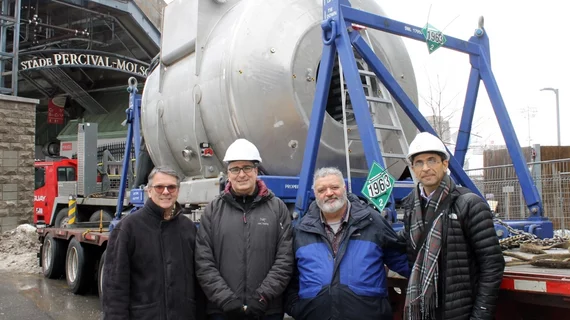McGill University receives Canada's first whole-body 7T MRI scanner
The Montreal Neurological Institute and Hospital—also known as The Neuro—of McGill University in Montreal, Québec, Canada, has installed the country’s first whole-body 7-Tesla MRI scanner.
The scanner, manufactured by Siemens Canada, is intended to give researchers new insights into the effects of neurological and metabolic diseases on the brain and the entire human nervous system.
“This latest addition to our brain imaging capabilities maintains our status as a world leader in the field and more importantly will allow our scientists to uncover the fundamental knowledge of the brain we need to develop better treatments that benefit patients with neurological disease,” Guy Rouleau, MD, director of The Neuro, said in a prepared statement.
Unlike conventional MRI equipment, a 7T MRI scanner can show the localization of specific brain functions, identify how different areas of the brain work together and provide more sensitive characterization of biochemical processes occurring in tissues throughout the body.
In 2015, researchers at The Neuro received an $18.8 million grant from the Canada Foundation for Innovation, the Quebec Government’s Ministry of Economy and Innovation and Siemens Canada to purchase the scanner, which is currently housed at The Neuro’s McConnell Brain Imaging Center.

